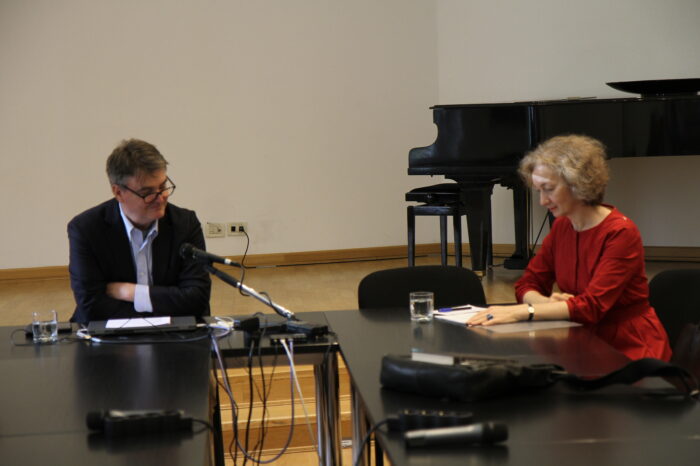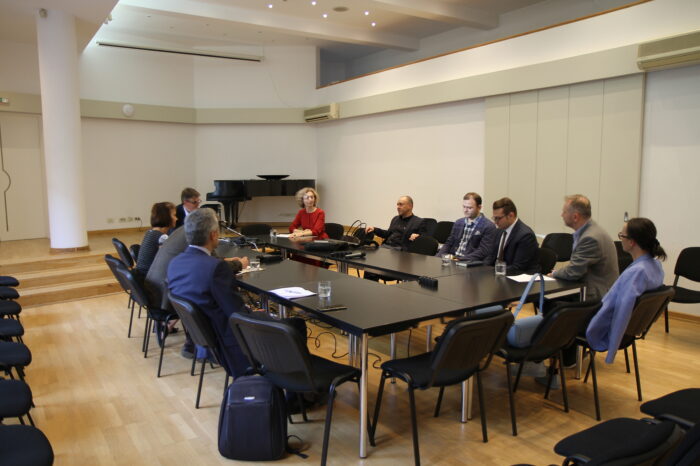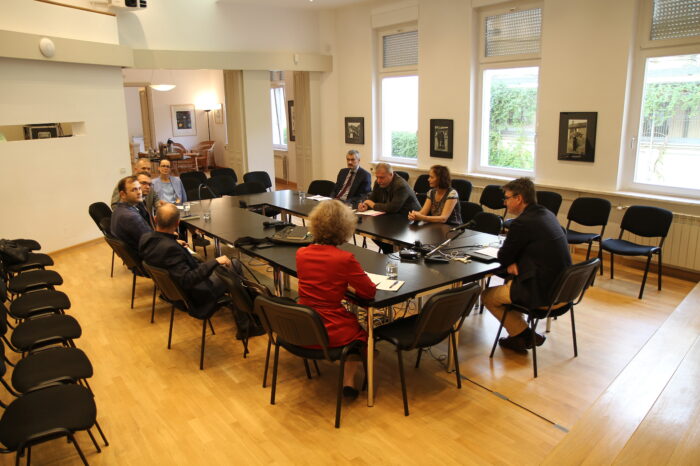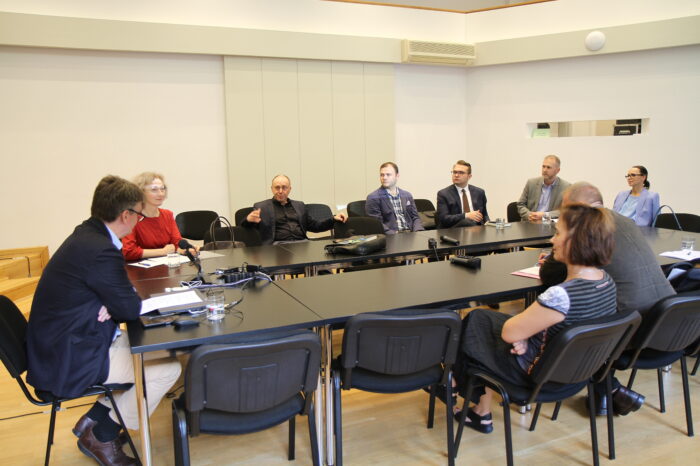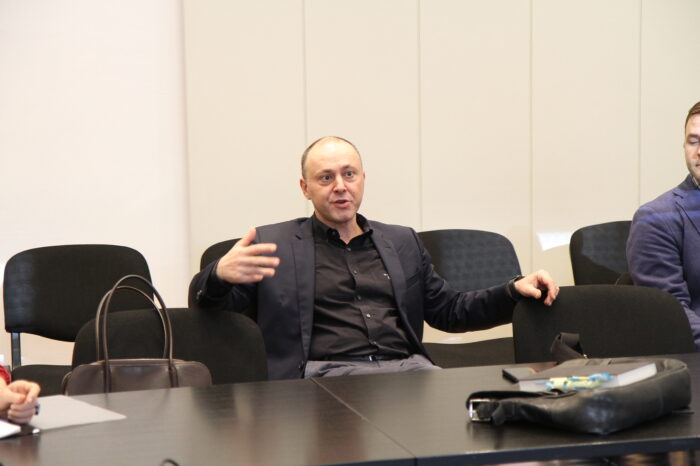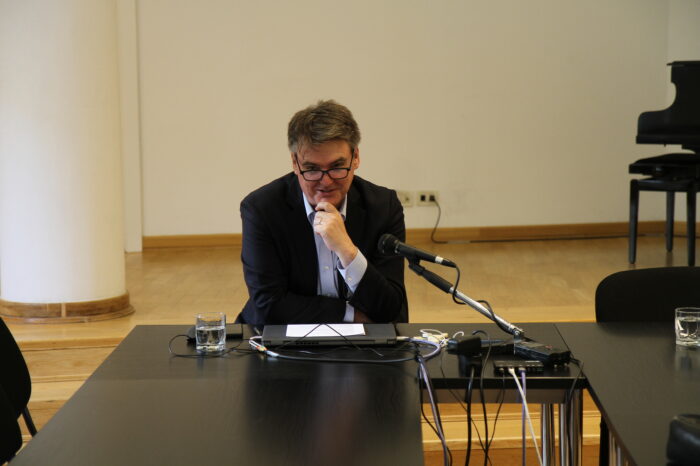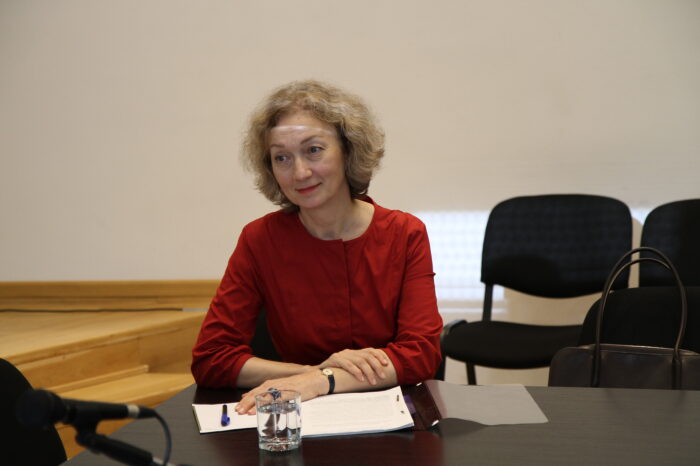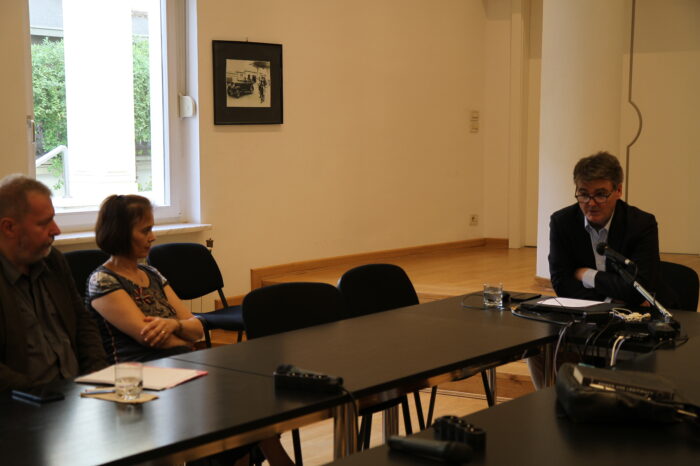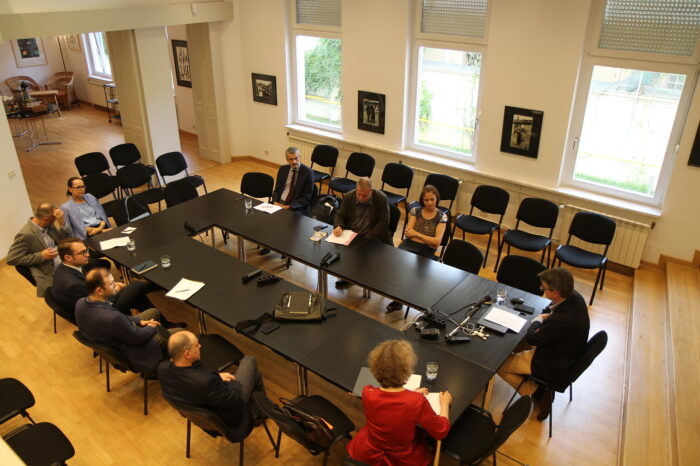Transatlantic Functionalism: New Deal Models and European Integration

Event: Lecture & Roundtable
Location: NEC conference hall
27 September 2023, 17.00-19.30 (Bucharest)
given by Peter LINDSETH, Olimpiad S. Ioffe Professor of International and Comparative Law, University of Connecticut School of Law
Discussant: Elena Simina TĂNĂSESCU, Professor, University of Bucharest; Judge, Constitutional Court of Romania
The lecture will be followed by a roundtable discussion:
The Future of European Integration: Between Technocracy and Politics
Moderator: Ștefan DEACONU, Professor of Law, University of Bucharest; Director, CDCIP
Participants: Marius BĂLAN, BENKE Károly, Ștefan DEACONU, Bogdan DIMA, Bogdan IANCU, Peter LINDSETH, Alina MATEI, Zoran OKLOPCIC, Elena Simina TĂNĂSESCU
Event convener: Bogdan IANCU
PROGRAM
Welcoming note by Professor Valentina SANDU-DEDIU, Rector of the New Europe College
17.00-18.00 Public Lecture
Transatlantic Functionalism: New Deal Models and European Integration
given by Professor Peter LINDSETH, University of Connecticut School of Law
Discussant: Professor Elena Simina TĂNĂSESCU, University of Bucharest
18.00-18.15 Coffee break
18.15-19.30 Roundtable
The Future of European Integration: Between Technocracy and Politics
Moderated by Ștefan DEACONU, Professor of Law, University of Bucharest; Director, CDCIP (Center for the Study of Constitutional Law and Political Institutions)
Participants:
Marius BĂLAN, Associate Professor of Law, Al. I Cuza University of Iași; Senior Researcher, ROLPERIPHERAL
BENKE Károly, First Assistant Magistrate, Constitutional Court of Romania
Bogdan DIMA, Associate Professor, University of Bucharest
Bogdan IANCU, Associate Professor, University of Bucharest; PI, NEC ROLPERIPHERAL
Peter L. LINDSETH, Olimpiad S. Ioffe Professor of International and Comparative Law, University of Connecticut School of Law
Alina MATEI, Senior Editor, Juridice.ro
Zoran OKLOPCIC, Associate Professor of Law, Carleton University
Constantin Cosmin PINTILIE, Doctoral Candidate, UB Law Faculty/Barrister, Stoica & Associates
Elena Simina TĂNĂSESCU, Professor, University of Bucharest; Judge, Constitutional Court of Romania
Dr. Cosmin VĂDUVA, Assistant Magistrate, CCR
*
ABSTRACT
Transatlantic Functionalism: New Deal Models and European Integration
by Professor Peter LINDSETH
For many advocates of European integration in the late 1940s and early 1950s, the seeming example of technocratic independence under the New Deal offered a justification for the delegation of regulatory power to autonomous supranational bodies. The New Deal represented, from this perspective, the triumph of “functionalist” governance — that is, governance that evolved as a function of the problems it sought to address, rather than being determined by seemingly outdated constitutional categories (“separation of powers” in the purported case of the New Deal, “national sovereignty” in European integration). The irony, of course, was that Roosevelt’s New Deal was much less receptive, both in principle and practice, to the sort of technocratic independence that these advocates believed to be inevitable and desirable in the case of integration. Indeed, consistent with a more nuanced understanding of the New Deal model, European integration would eventually secure a durable institutional existence only after being brought more directly under the shared control and oversight of the national executives of the member states. Contrary to expectations of functionalist (and later so-called neofunctionalist) theorists, governance beyond the state in postwar Western Europe did not evolve merely as a consequence of functional demands for technocratic independence. Rather, two additional dimensions of change also proved decisive: the political — or the defense of existing institutional advantages and/or the struggle to realize new ones; and the cultural — or the mobilization of conceptions of “right” or legitimate governance in the face of purported functional and political pressures for change. As a consequence of the interplay of all three dimensions — functional, political, and cultural — European integration ultimately settled on a form of governance in which the political oversight and control of national executives played a decisive role, a feature of European supranationalism that persists to this day. Even if a measure of supranational technocratic autonomy was broadly recognized as functionally necessary to the European project, national executives worked successfully to preserve significant institutional advantages in the integration process by mobilizing conceptions of legitimacy that, for better or worse, remain wedded to national institutions to a significant degree. It was through national executive oversight — eventually supplemented by national parliamentary and national judicial oversight — that integration has been able to maintain a connection to conceptions of democratic and constitutional legitimacy on the national level, even as functional pressures seemed to warrant a shift in governance to autonomous supranational bodies.
*
This event is organized within the research project titled Rule of Law at the European Periphery: (Dis)incentive Structures and Conceptual Shifts (ROLPERIPHERAL), supported by UEFISCDI – Exploratory Research (PN-III-P4-PCE-2021-0319) and New Europe College, Bucharest.
